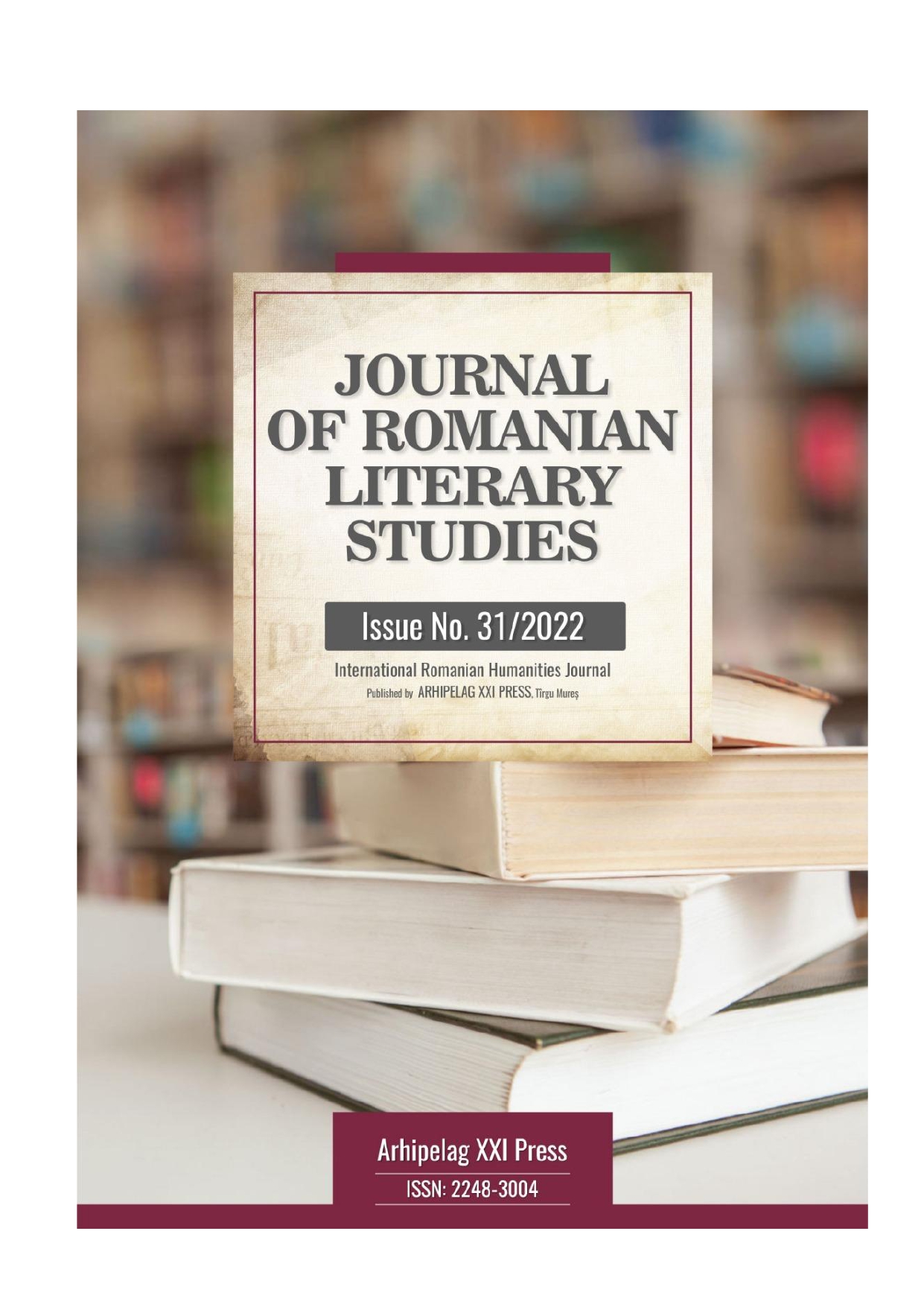POINTS OF VIEW REGARDING THE APPROACH TO THE SPACE-TIME EQUATION IN THE NOVEL FROM THE SEVENTH DECADE OF THE 20TH CENTURY
POINTS OF VIEW REGARDING THE APPROACH TO THE SPACE-TIME EQUATION IN THE NOVEL FROM THE SEVENTH DECADE OF THE 20TH CENTURY
Author(s): Alina-Roxana Mușat (Stoian)Subject(s): Novel, Romanian Literature, Philology, Theory of Literature
Published by: Editura Arhipelag XXI
Keywords: ideology; crisis; maturation; 70’s people; experimental;
Summary/Abstract: The focus of this study is the change caused by the 70's promotion in the "space-time equation", through a systematization of significant narrative experiences starting with the approaches of Nicolae Manolescu, Sorin Alexandrescu, Liviu Petrescu and so on. The 70’s writers venture on their own in the troubled waters after the step of false liberation through which Romanian literature tries to connect to the European literature movement. Through rediscussing of literature in a polydiegetic way, moving from one level of narrative records to another, we’ll signal the ‘’specific difference’’ between the levels of 60’s modernism and the particular and recognizable notes of the 70’s modernism, in general, in the mannerist option for the sibilance of fictive reality. A distinctive feature of the 70’s, this “productive choice” and “anti- representative power” will add a root symbol under the question mark, the “expression-representation dogma” according to which at the base of every written work lies an “antecedence”: The World or the Self. It’s about a response to the “idealism” which Ricardou will disapprove in “Problèmes du Nouveau Roman” (1976), published under the Romanian title of “Noi probleme ale romanului” (Univers Publishing 1988), which highlights the dangers of “realistic trivialization” that pretends that inside the novel there is a replacement of an “installed world”, the expression of a previous meaning. The adherence to “creative deciphering”, launched into an era of artistic duality, enslaved to the intention of resisting the direction of social realism and the temptation of speaking “forbidden truths” was rated a form of cultural resistance. So, the 70’s novel confirms an unusual method of assimilation of the crisis of modernity through the mainstreaming of contradictions and related tensions of an innovative register readapted to the formula established by A. Gide. The addictive integration in cannon can also be found in the attention of new critique. Paul Cernat in the work entitled “Modernismul retro in romanul românesc interbelic”, harnessing some suggestions of fellow critiques Nicolae Manolescu, Eugen Lovinescu or Eugen Simion, with the desire of looking back at the evolution of literature in relation to the social dynamic. The basic principle, which also provides a starting point, is the new perspective towards time and space in the new Romanian novel. This narrative option, which visibly modifies itself when Romanian writers come close to the formula proposed by the new French novel, rather than the formula of canonic modernism, reactivated in accordance to the interwar model by the 60’s people. Translated in the formula used by the theorist and novelist Jean Ricardou, the literature of the 70’s class will assume, in subsidiary, an immanent critical role, through which he “(self)presents”, “(self)designates”, “(self)comments” his own doing and mechanism. It’s about a radicalized role first in the “self presentation tendency ”a la maniere de New Novel”, through which the story of the 70’s refers to itself countless amounts of times. Opposed to the traditional perspective of space and time, timelessness and spacelessness of the modern novels of the 70’s offer another look over these categories in which the inner feelings of characters can influence chronologies and can transpose “histories'' in a new/other space in order to protect and accurately reproduce, through memorizing, past and finished events , retransposed in a continuous present. Gh. Manolache considers that these “champions of detoxification” and “decanonization of genre” make themselves known through a few “important wins” acknowledged in the experimentation of certain composition formulas which affirm the natural discontinuity of the act of storytelling.
Journal: Journal of Romanian Literary Studies
- Issue Year: 2022
- Issue No: 31
- Page Range: 430-441
- Page Count: 12
- Language: Romanian

